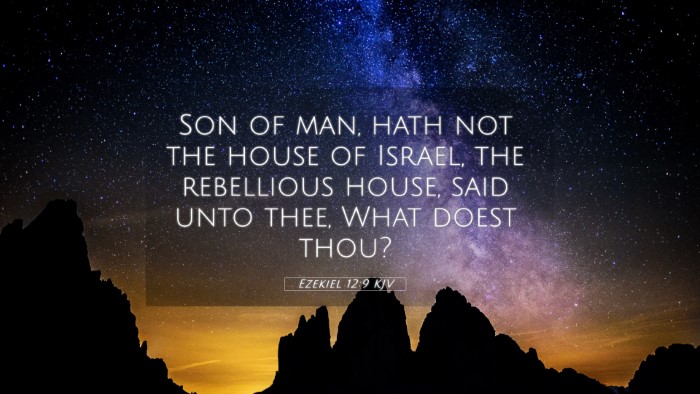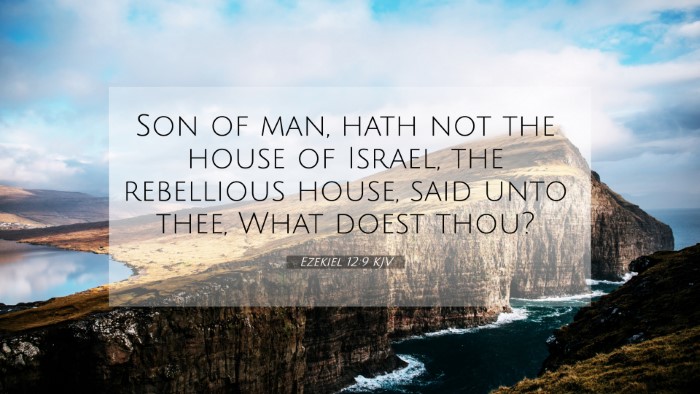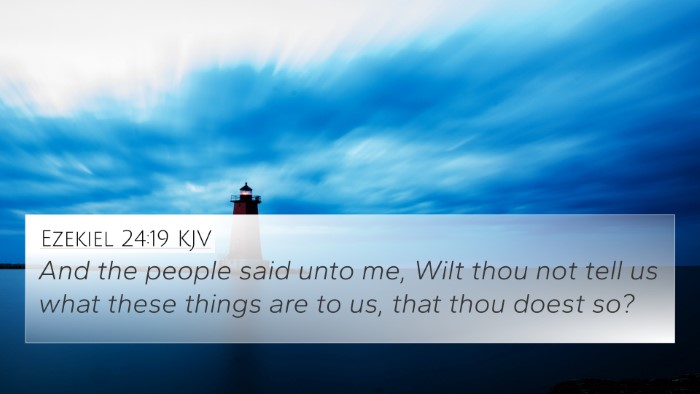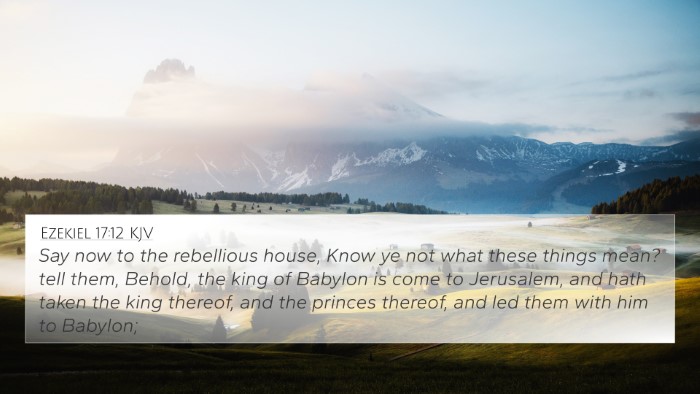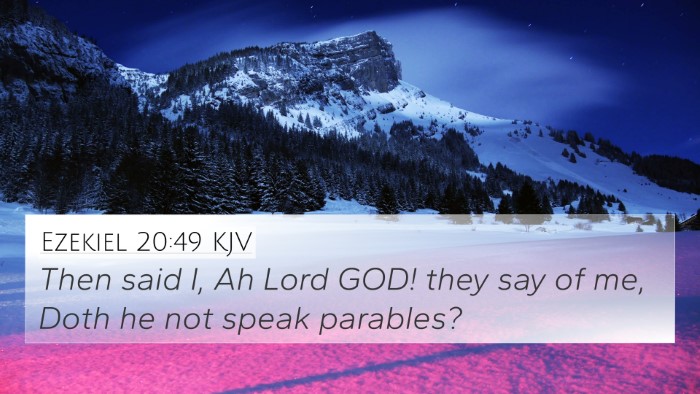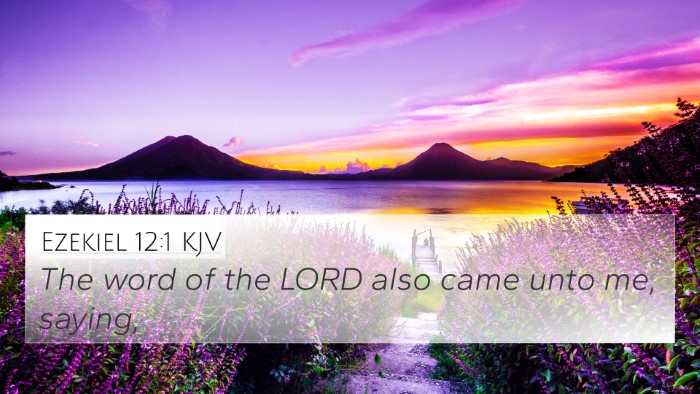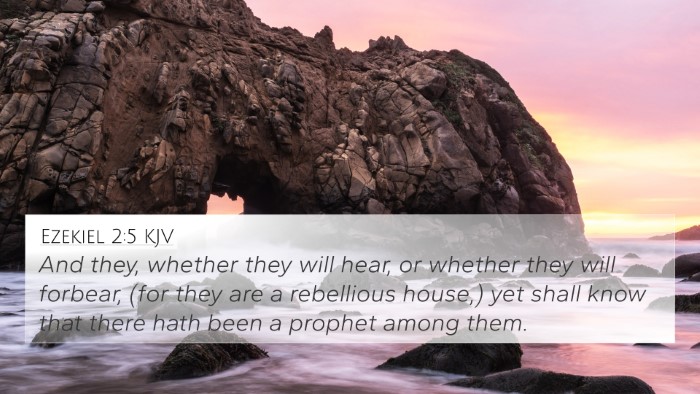Ezekiel 12:9 Explained
Bible Verse: Ezekiel 12:9
Ezekiel 12:9 states: "Son of man, has not the house of Israel, the rebellious house, said unto thee, What doest thou?" This verse is a part of a larger prophetic context where God is communicating through Ezekiel, addressing the ongoing rebellion and disbelief of His people.
Meaning and Interpretation
The verse speaks to the frustration of God regarding the state of the house of Israel, whom He refers to as a "rebellious house." It showcases their unwillingness to listen to the prophetic words that were meant to guide them back to a relationship with God.
Insights from Public Domain Commentaries
This section draws insights from esteemed commentators like Matthew Henry, Albert Barnes, and Adam Clarke:
-
Matthew Henry:
Henry emphasizes the stubbornness of the Israelites who consistently questioned Ezekiel's prophetic actions and messages. He underlines the theme of rebellion that permeated Israelite society, reflecting a broader human tendency to resist divine instruction.
-
Albert Barnes:
Barnes remarks on the irony present in the questioning of Ezekiel by the Israelites. He highlights how, despite their status as God’s chosen people, they fail to recognize the significance of Ezekiel’s messages and actions, which serve as productive symbols of warning and hope.
-
Adam Clarke:
Clarke provides a historical context, suggesting that this questioning reflects the lack of understanding and appreciation for prophetic tradition in Israel. He notes that this moment shows how divine warnings can be met with skepticism instead of reverence, serving as a cautionary tale for contemporary readers.
Cross-References for Ezekiel 12:9
To deepen the understanding of Ezekiel 12:9, one can explore several related Bible verses. Here are some cross-references that provide thematic and interpretative connections:
- Jeremiah 7:25-26: Discusses the continual disobedience of the Israelites to God's prophets.
- Isaiah 30:9-11: Describes the rebellious nature of Israel, similar to Ezekiel's message.
- Ezekiel 3:7: Emphasizes Israel's resistance to God's messages, reflecting their rebelliousness.
- Hosea 4:6: Highlights the consequence of a lack of knowledge and understanding among God's people.
- Lamentations 3:33: Reminds readers of God's character, demonstrating that He does not willingly afflict or grieve the children of men.
- Matthew 13:14-15: In the New Testament, Jesus quotes Isaiah regarding the people's hard hearts, paralleling the issues present in Ezekiel's day.
- Hebrews 3:7-9: Warns against hardening one's heart, emphasizing the continual need to heed God's voice.
Thematic Connections
This verse encourages us to think about the broader theme of disobedience and the human struggle to listen to divine guidance. It encourages a reflective examination of how individuals and communities respond to prophetic voices today.
Conclusion
In summary, Ezekiel 12:9 encapsulates the tension between God's messages of warning and the human inclination to question and reject them. Through exploring cross-references and commentary insights, a deeper understanding emerges of how this verse speaks not only to its immediate context but also to timeless themes relevant to our relationship with God.
Further Study
For those interested in deeper Bible study methods, utilizing tools for Bible cross-referencing can enhance one's understanding of scriptural connections. Engaging with a Bible concordance can help identify similar themes and verses across the Old and New Testaments.

